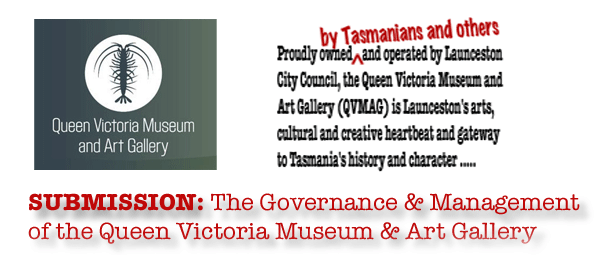 Taking into account recent press reports – by and large the only information flowing to LCC’s constituency and the institution’s COI – it seems that LCC’s General Manager has embarked upon a hasty course of action that pays little if any attention to governance matters and is about to appoint a new Director notwithstanding:
Taking into account recent press reports – by and large the only information flowing to LCC’s constituency and the institution’s COI – it seems that LCC’s General Manager has embarked upon a hasty course of action that pays little if any attention to governance matters and is about to appoint a new Director notwithstanding:1. There is not a current and comprehensive five year Strategic Plan, and by implication no matching business/enterprise planning, in place;
2. And consequently, the scope of the position of Director is unable to be comprehensively described in her/his duty statement or the advertisement for the position.
3. And furthermore as a consequence of the above, there is ambiguity in regard to the qualifications and skills sets an applicant would need to possess to be considered for the position;
4. And additionally, the qualifications and the domain knowledge of those engaged in the recruitment and assessment process of applicants are equally ambiguous and there is no evidence that this is being suitably considered.This situation virtually mirrors the one that prevailed for the appointment of the previous Director. Aside from the alleged backdrop of his recent dismissal, on his strong urging, and presumably with the support of the then General Manager, reforms to governance were “put on hold” – “ Director's grand vision”, Examiner, Michael Lowe 13 Mar, 2007.
Albeit wise in hindsight, there is a case to be put that says:
1. With governance reforms, and the checks and balances that may well have come with them, the lamentable situation the QVMAG is now in might have been avoided;
2. The reforms might well have mitigated against the weaknesses and failures that are now evident; and
3. Indeed, the lack of the governance reforms may well have led to the recent demise of the Director.
To be on a similar course against this background, and in contradiction of sound management principles, seems imprudent if not foolhardy. Most importantly, the course that LCC is currently on, and the circumstances that surround it demonstrates that Council has virtually abandoned its governance role in regard to the QVMAG – the representation of and consultation with the constituency and the functional lack of accountability that is now evident.
Together these things seem to add up to LCC’s functional lack of accountability as the QVMAG’s governing body.
In turn this seems to have put in place the circumstances where the General Manager can act alone and without reference to either the Aldermen or the Museum’s Community of Ownership and Interest.
Given the failures that can be attributed to a similar course of action in the past this seems not only inappropriate but imprudent as well. Furthermore, it is lamentable that the LCC shows no hint of moving beyond the status quo notwithstanding the failures that are clearly visible – and are costing ratepayers and taxpayers dearly.
3. And furthermore as a consequence of the above, there is ambiguity in regard to the qualifications and skills sets an applicant would need to possess to be considered for the position;
4. And additionally, the qualifications and the domain knowledge of those engaged in the recruitment and assessment process of applicants are equally ambiguous and there is no evidence that this is being suitably considered.This situation virtually mirrors the one that prevailed for the appointment of the previous Director. Aside from the alleged backdrop of his recent dismissal, on his strong urging, and presumably with the support of the then General Manager, reforms to governance were “put on hold” – “ Director's grand vision”, Examiner, Michael Lowe 13 Mar, 2007.
Albeit wise in hindsight, there is a case to be put that says:
1. With governance reforms, and the checks and balances that may well have come with them, the lamentable situation the QVMAG is now in might have been avoided;
2. The reforms might well have mitigated against the weaknesses and failures that are now evident; and
3. Indeed, the lack of the governance reforms may well have led to the recent demise of the Director.
To be on a similar course against this background, and in contradiction of sound management principles, seems imprudent if not foolhardy. Most importantly, the course that LCC is currently on, and the circumstances that surround it demonstrates that Council has virtually abandoned its governance role in regard to the QVMAG – the representation of and consultation with the constituency and the functional lack of accountability that is now evident.
Together these things seem to add up to LCC’s functional lack of accountability as the QVMAG’s governing body.
In turn this seems to have put in place the circumstances where the General Manager can act alone and without reference to either the Aldermen or the Museum’s Community of Ownership and Interest.
Given the failures that can be attributed to a similar course of action in the past this seems not only inappropriate but imprudent as well. Furthermore, it is lamentable that the LCC shows no hint of moving beyond the status quo notwithstanding the failures that are clearly visible – and are costing ratepayers and taxpayers dearly.

No comments:
Post a Comment